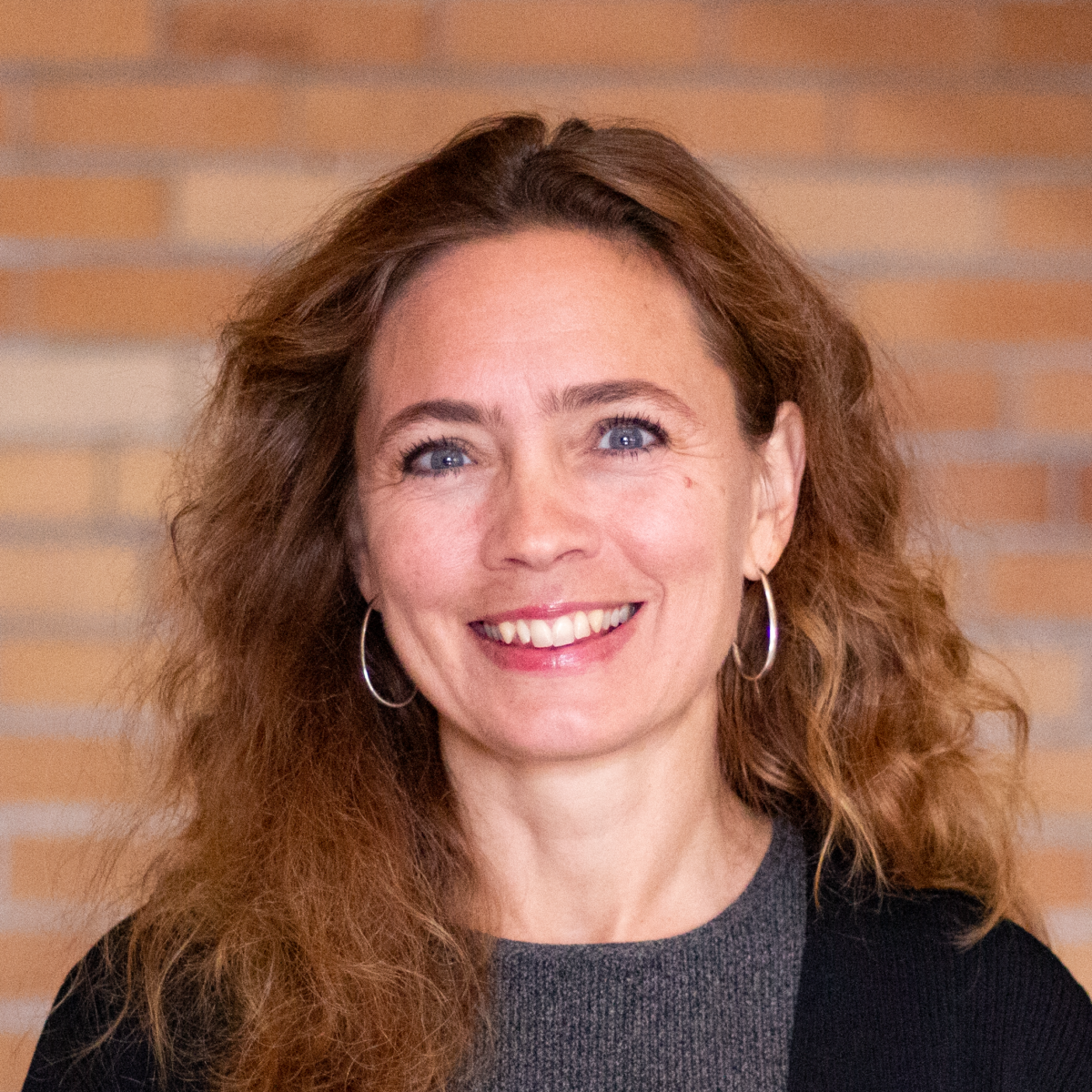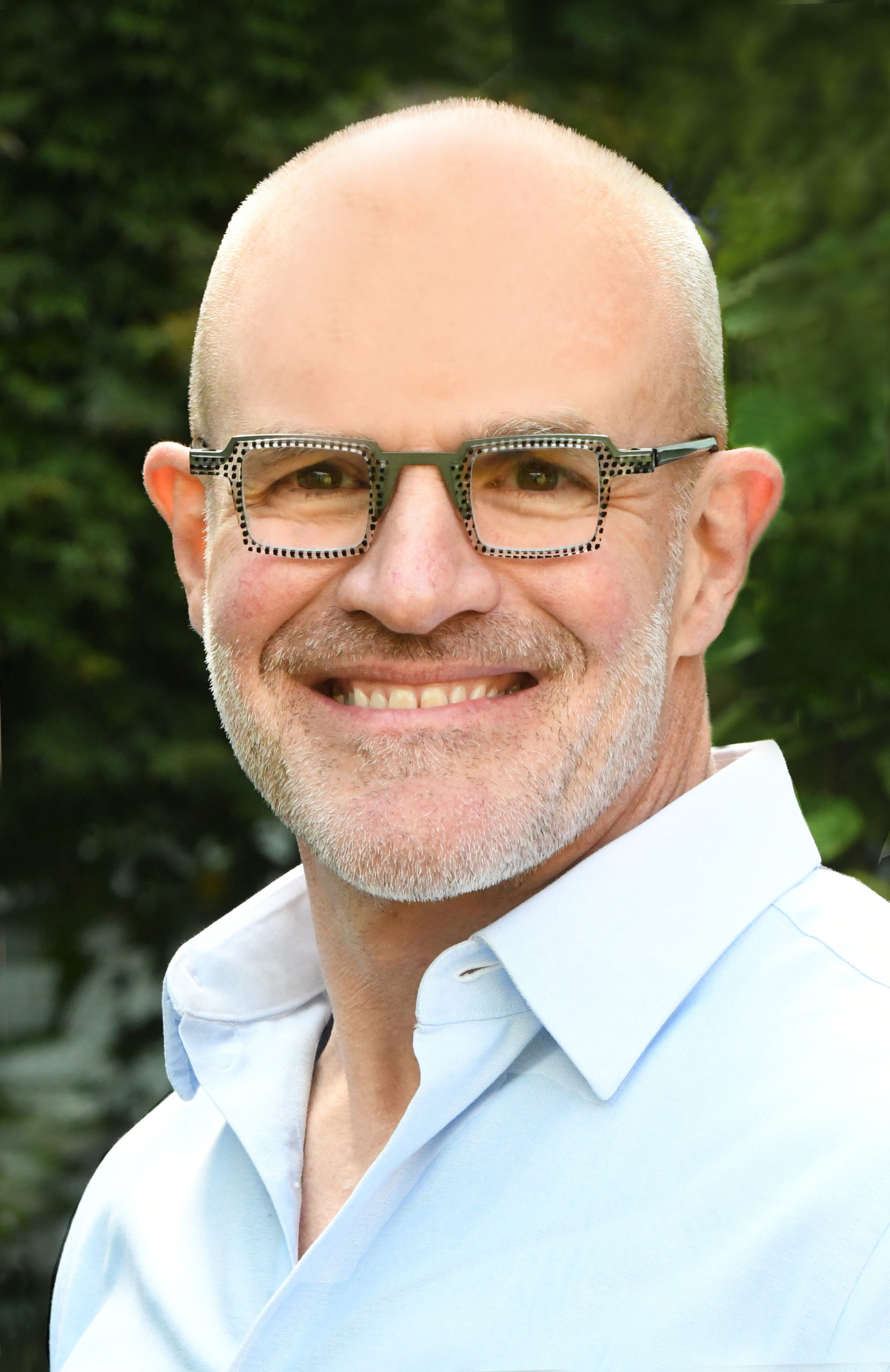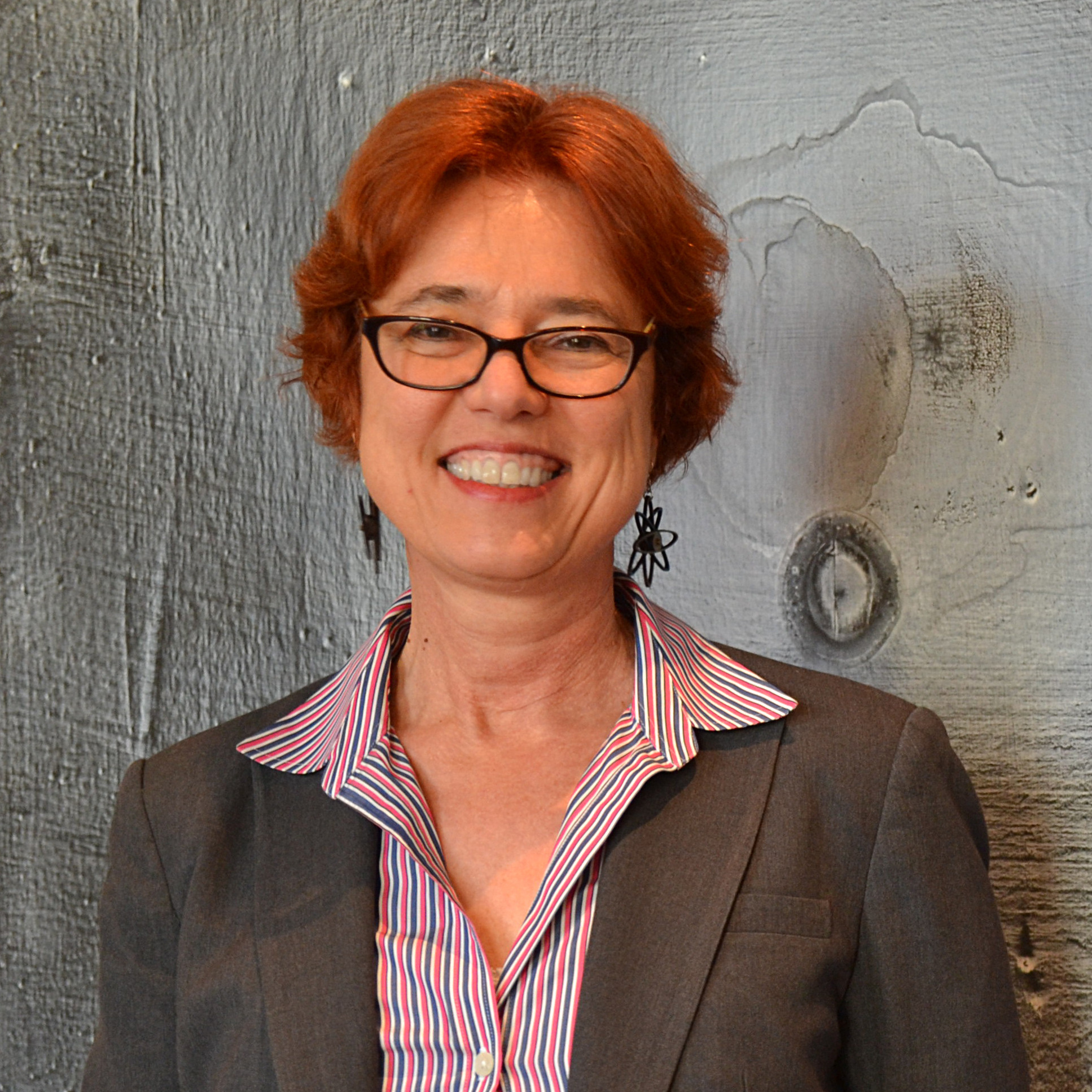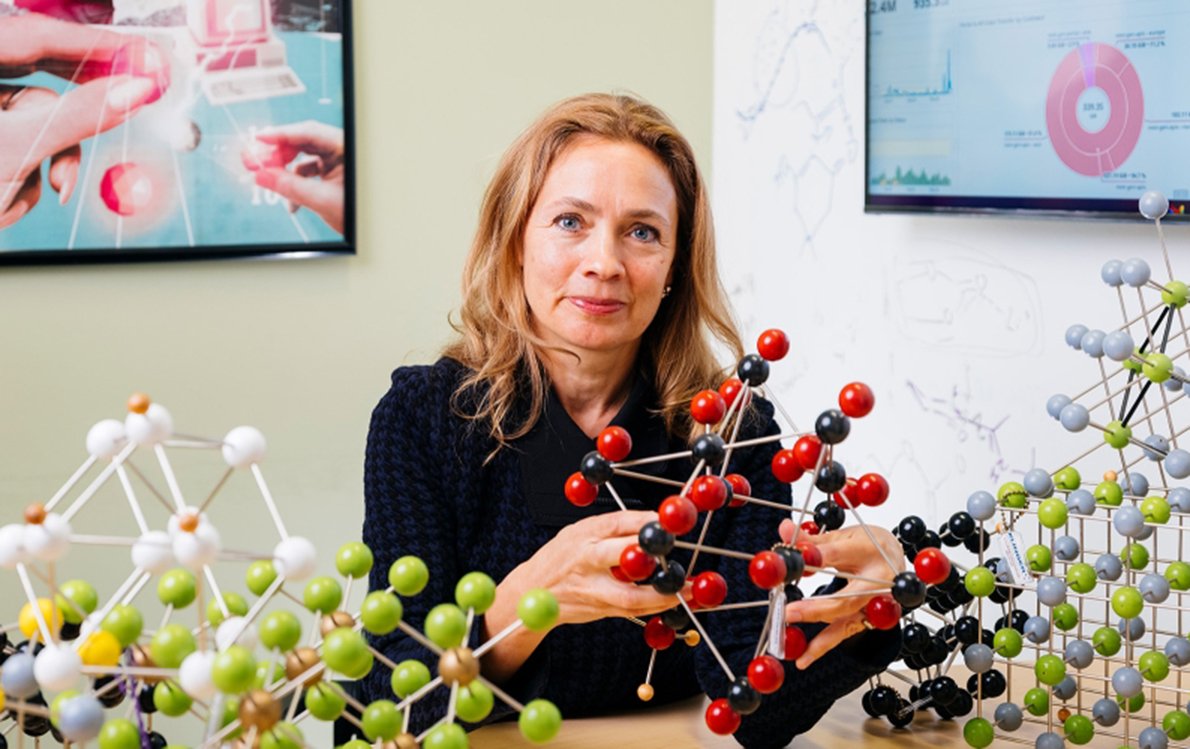Kristin Persson – a Daniel M. Tellep Distinguished Professor in Materials Science and Engineering at UC Berkeley, faculty senior scientist at Lawrence Berkeley National Laboratory (Berkeley Lab), director of the Materials Project, and former director of the Molecular Foundry – has been named a 2024 Distinguished Scientist Fellow by the U.S. Department of Energy’s Office of Science.
As part of the Office of Science award, Persson will receive $1 million in direct funding via the Distinguished Scientist Fellows program to support her research.
Persson was honored for “pioneering advancements in data-driven materials design and discovery through first-principles based computations and analysis algorithms that yield materials with optimal properties for engineers and scientists worldwide to accelerate innovation, and for her management and outreach skills that promote the DOE missions,” according to the Office of Science award citation.
Persson and the other recipients – Mary Raafat Mikhail Bishai of Brookhaven National Laboratory, Lois Curfman McInnes of Argonne National Laboratory, and Gerald A. Tuskan of Oak Ridge National Laboratory – will each give an online public lecture as part of a virtual awards ceremony in the coming months. Persson’s online lecture will take place Oct. 17 and is open for registration to the public.
Now in its sixth year, this award recognizes prominent scientists doing research relevant to Office of Science programs, and in particular, scientific leadership and engagement with the academic and research communities, significant mentoring of early-career scientists or engineers, the quality of publications in high-impact journals, and service to the research community.
“Kristin has demonstrated exceptional leadership in managing large and complex research programs,” said Berkeley Lab Director Mike Witherell. “Under her leadership, the Materials Project, which aims to accelerate the design and development of new materials for energy applications and other important fields of research, has developed its own international user community and has continued to grow.”
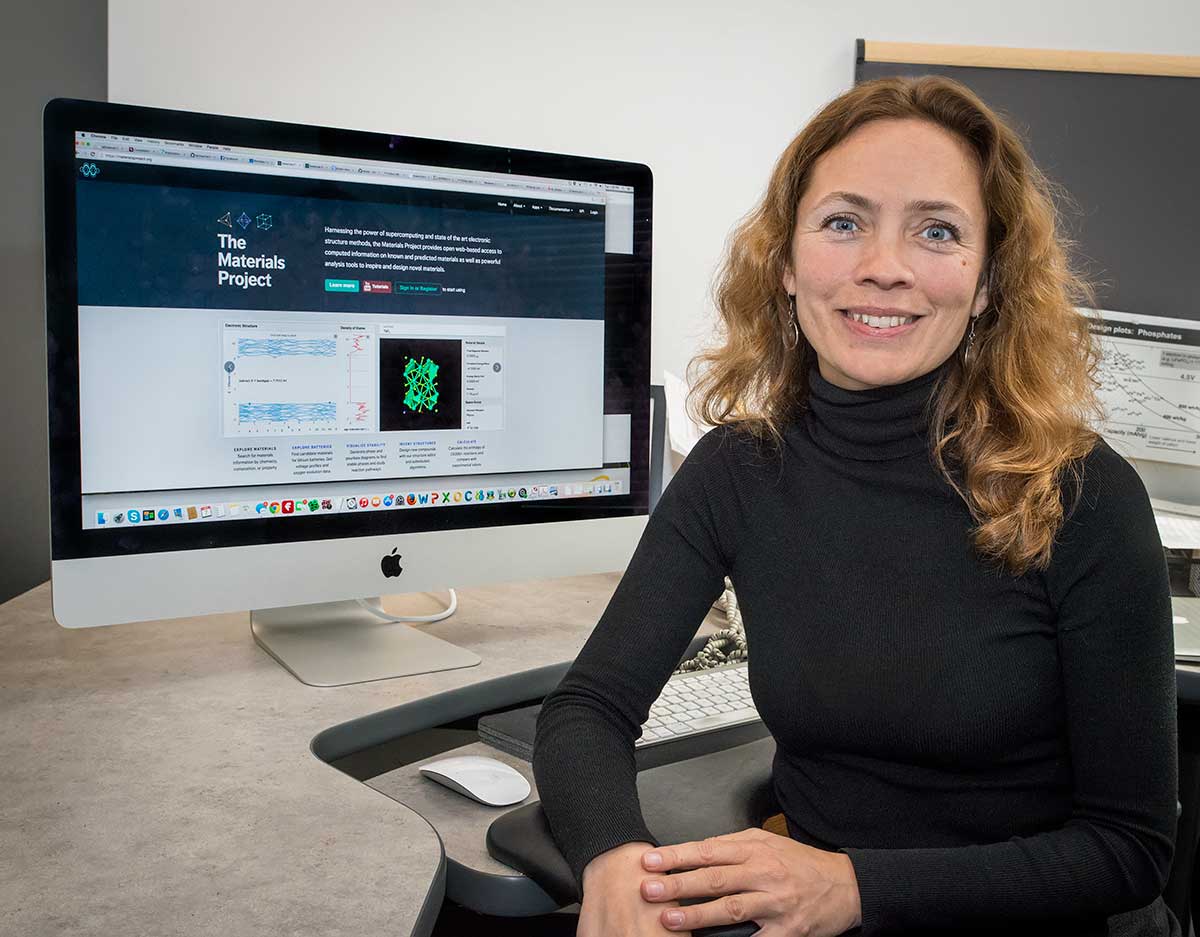
Under Persson’s directorship since 2011, the Materials Project has become the most widely used open-access repository of information on inorganic materials in the world. The database holds millions of properties on hundreds of thousands of crystalline structures and molecules, information primarily processed at Berkeley Lab’s National Energy Research Science Computing Center. More than 500,000 people – many of whom include researchers who are developing new materials for high-performance batteries, fuel cells, photovoltaics, and data storage – are registered as users of the site and, on average, more than four papers citing the Materials Project are published every day.
She served as director of the Molecular Foundry, a nanoscience user facility at Berkeley Lab, between 2020 and 2024. During her tenure, she successfully steered the Foundry and its user community through the unpredictable challenges of a global pandemic by overseeing new programs enabling greater interactions with researchers who could not easily travel to Berkeley during lockdown, among other notable achievements. The Molecular Foundry is one of five DOE national user facilities for nanoscale science and serves over a thousand academic, industrial, and government scientists from around the world each year.
Before joining Berkeley Lab in 2008 as a research chemist, Persson worked as a postdoctoral researcher at the Massachusetts Institute of Technology (MIT) after earning her doctorate in theoretical physics from the Royal Institute of Technology in Stockholm.
Persson is the recipient of numerous awards and accolades, and has published hundreds of scientific papers. She has been named a Highly Cited Researcher by Web of Science in 2020, 2021, 2022, and 2023. In February this year, she was elected a foreign member of the Royal Swedish Academy of Sciences. She is also a fellow of the American Association for the Advancement of Science (AAAS), the American Physical Society, and the Materials Research Society. In 2023 she was awarded the Cyril Stanley Smith Award by the Minerals, Metals & Materials Society. She has received the Secretary of Energy’s Achievement Award twice, and in 2013 she accepted the Berkeley Lab Director’s Award for Exceptional Scientific Achievement.
The Molecular Foundry and the National Energy Research Science Computing Center are user facilities at Berkeley Lab.
###
Lawrence Berkeley National Laboratory (Berkeley Lab) is committed to delivering solutions for humankind through research in clean energy, a healthy planet, and discovery science. Founded in 1931 on the belief that the biggest problems are best addressed by teams, Berkeley Lab and its scientists have been recognized with 16 Nobel Prizes. Researchers from around the world rely on the lab’s world-class scientific facilities for their own pioneering research. Berkeley Lab is a multiprogram national laboratory managed by the University of California for the U.S. Department of Energy’s Office of Science.
DOE’s Office of Science is the single largest supporter of basic research in the physical sciences in the United States, and is working to address some of the most pressing challenges of our time. For more information, please visit energy.gov/science.
